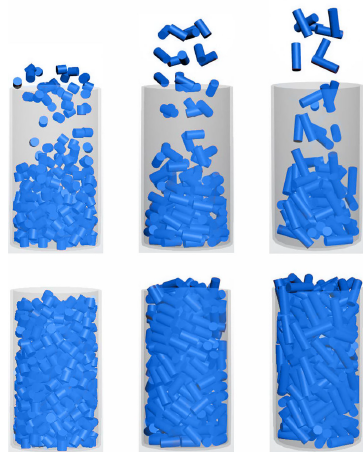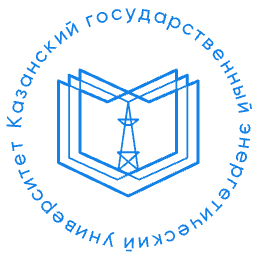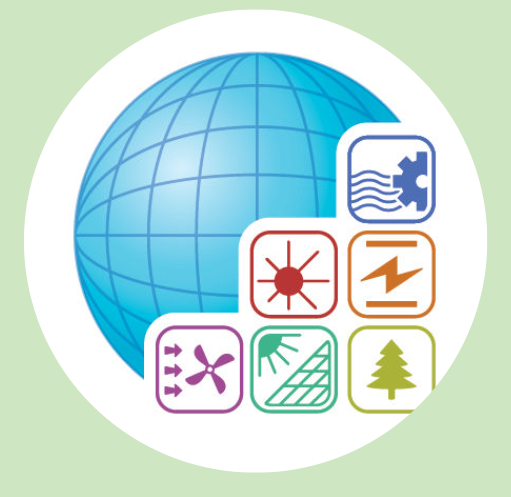|
I am PhD student in the department of Mechanical and Aerospace Engineering at Princeton University. My focus is in Materials Science, precisely, Battery technologies and Carbon Aerogels for water purification and desalination. I am extremely fortunate to be advised by Professor Craig B. Arnold I graduated from Kazan State Power Engineering University with a Bachelor degree in Mechanical and Energy Engineering. While in Russia, I have been involved in several undergraduate research projects. Prior to joining Princeton University, I spent a year at the University of Erlangen-Nuremberg in Germany where I gained knowledge in thin-film processing, self-organization processes and nanotechnologies of dispersed systems through their Master program in Clean Energy Processes. I eventually stopped halfway through the Masters program after being admitted to join Princeton University in the USA. |

|
|
|
|
|
|
I am a PhD student in the department of Mechanical and Aerospace Engineering (MAE) at Princeton University. In my undergraduate years, I have been fortunate to gain several research experiences related to Renewable Energy as well and Computational Sciences. Upon graduation, I decided to embark on a more experimental direction for my PhD. I am primarily interested in Battery technologies and Carbon Aerogels. |
|
|
Sergei A. Solovev, Olga V. Soloveva, Irina G. Akhmetova, Yuri V. Vankov, Daniel L. Paluku, In the present work, based on numerical simulation, a comparative analysis of the flow of a chemically reacting gas flow through a catalyst is performed using the example of selective hydrogenation of acetylene in a wide range of flow temperatures variation. Catalyst models are based on open-cell foam material. A comparison is also made with calculations and experimental data for a granular catalyst. The porosity and cell diameter were chosen as variable parameters for the porous catalyst. The results of numerical studies were obtained in the form of component concentration fields of the gas mixture, vector fields of gas movement, values of conversion, and selectivity of the reaction under study. The parameters of the porous material of the catalyst are determined for the maximum efficiency of the process under study |

|
Sergei A. Solovev, Olga V. Soloveva, Daniel L. Paluku, Alexander A. Lamberov. In this paper, the Discrete Element Method of simulation was used to study the catalytic granule size effect on the efficiency of a bed reactor for the ethylbenzene dehydrogenation reaction. The model constructed for the laboratory experiment was made of catalyst granules of lengths 3, 6 and 9 mm, and diameters 2.8, 3, and 3.2 mm. A detailed evaluation of the catalyst total surface area and porosity effect was conducted owing to the analysis of particles size effect on the packing. Different results were observed for a wide feed gas mixture rate. Calculations performed allowed to deduce dependences of the reaction product concentration, the pressure drops, and the reactor productivity for all the particle sizes investigated. |

|
D. S. Balzamov, E. Y. Balzamova, V. V. Bronskaya, D. L. Paluku, G.I. Oykina, and O. S. Kharitonova. The technological process of petrochemical plants is accompanied by the output of thermal secondary energy resources, which are widely used in the technological cycle due to application of waste heat boilers to generate water vapour of different pressures. Most often, the preparation of feed water for the waste heat boilers is carried out using deeply demineralized water, the production of which is an expensive process. There is the partial replacement of deeply demineralized water by a condensate, which returns to the heat point of the plant in this article. The economic effect is presented. |

|
G. B. Sayfutdinova, and D. L. Paluku. (page 34--37) The article discusses the various possibilities of using renewable energy sources (VEI) in Russia. Renewable energy sources can be an excellent alternative to the global energy problem associated with the reduction of reserves of fossil energy sources, which are currently the main source of energy supply in the Russian Federation. It is shown that the prospects for increasing the share of renewable energy from renewable energy sources in Russia are possible and expedient, as a resource-saving component, within the framework of the Russian and international energy strategy. |

|
D. L. Paluku, N. F. Timerbaev. Due to the fact that the price of fossil fuels is increasing, and solar and wind energy are used in insufficient quantities, the world is now forced to turn to renewable sources of energy. Wind power engineering is considered to be especially promising, because there are necessary assets for the development of this sector and its maximum utilization. Russia has also joined this energy trend. Based on certain indicators, some studies allow us to determine the places that can be considered favorable for the construction of wind power plants (WPP). These studies include an analysis of wind speed, pressure and air humidity, as well as accessibility of the area, its size and characteristics, the ability to connect to the electrical network and the impact on the lives of local residents. Based on data from IRENA, the World Wind Atlas (Wind Atlas), De Wind and other energy agencies, it was possible to draw conclusions about the advisable places to build wind turbines in the Republic of Tatarstan. |
|
|
|
|
|
Website modified from here |